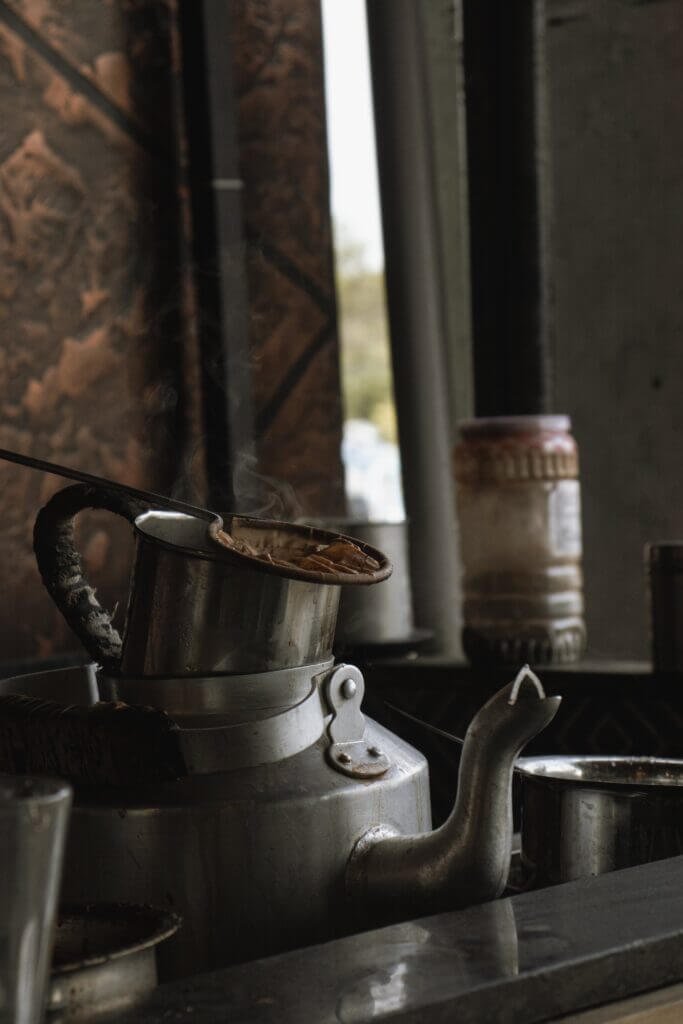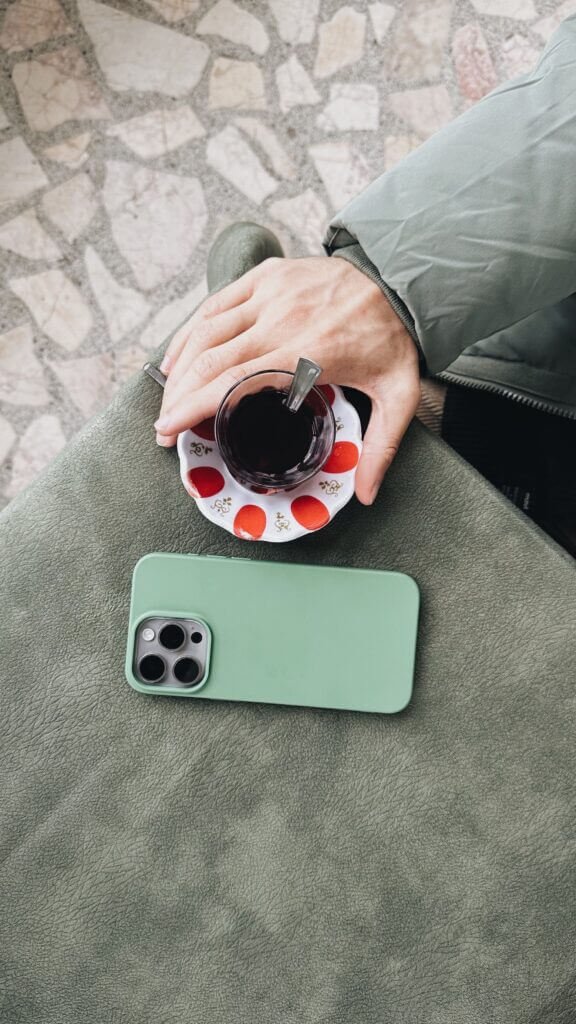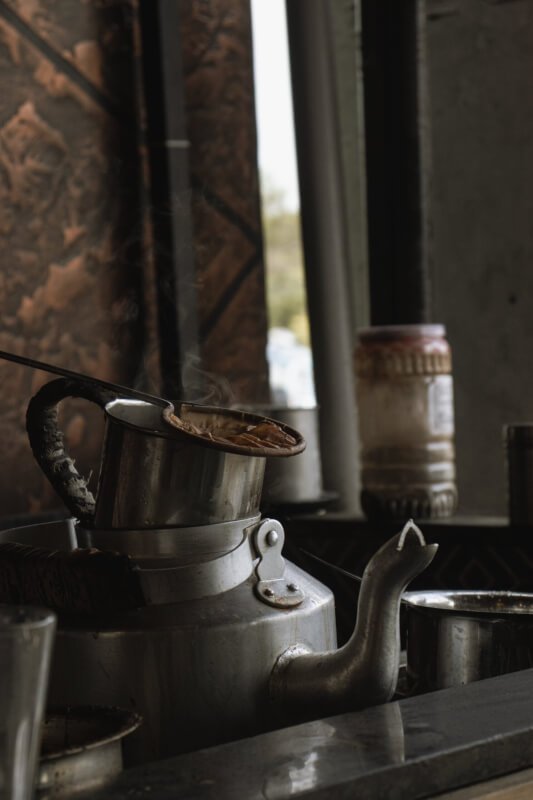Are you a tea enthusiast looking to perfect your brewing skills? If so, you’ve come to the right place! In this article, we’ll explore the art of brewing the perfect cup of specialty tea. Whether you prefer floral and delicate green teas, bold and robust black teas, or a refreshing herbal infusion, we’ll guide you through the process step by step to help you achieve tea perfection. So grab your favorite tea leaves and get ready to immerse yourself in the wonderful world of specialty tea brewing!

Choosing the Right Tea
When it comes to brewing the perfect cup of specialty tea, the first step is choosing the right tea. Specialty tea offers a wide range of flavors, aromas, and benefits, making it an exciting and enjoyable experience for tea enthusiasts. To make this decision easier, it’s important to understand the different types of specialty tea available.
Understanding Specialty Tea
Specialty tea is often considered the highest quality tea available, sourced from specific regions and carefully processed to bring out its unique characteristics. It is different from mass-produced tea that is commonly found in tea bags. Specialty tea is known for its complex flavors, nuanced aromas, and the attention to detail that goes into its production.
Exploring Different Types of Specialty Tea
There is a vast world of specialty tea waiting to be explored. From traditional black, green, and white teas to more unique varieties like oolong, herbal, and flavored teas, there is a tea to suit every taste preference. Each type of tea undergoes a distinct processing method, resulting in different flavors and characteristics.
When choosing a specialty tea, consider your personal preferences. Do you enjoy the bold, robust flavors of black tea? Or perhaps you prefer the delicate and grassy notes of green tea? Exploring different types of tea will help you discover your favorites and understand the flavors you enjoy the most.
Selecting High-Quality Specialty Tea
To ensure the best tasting cup of tea, it’s important to select high-quality specialty tea. Look for teas that are sourced from reputable growers and producers. Check for certifications like organic, fair-trade, or single-origin, which indicate a commitment to quality and ethical practices.
When examining the tea leaves, they should appear whole and intact, not broken or crushed. This is a sign of quality, as intact leaves preserve the tea’s flavor and aroma. Additionally, consider the freshness of the tea. Tea that has been stored properly will have a vibrant color and strong fragrance.
Water Quality and Temperature
The quality of water used while brewing tea plays a vital role in achieving the perfect cup. After all, tea is mostly water, so the flavor and characteristics of the water can greatly impact the overall taste of the tea.
Importance of Water Quality
Using good quality water is crucial when brewing specialty tea. Ideally, use filtered water or natural spring water to ensure purity and to avoid any impurities that may alter the taste of the tea. Tap water can sometimes contain chlorine or other chemicals, which can affect the flavor.
Determining the Right Water Temperature
Different types of tea require specific water temperatures for optimal flavor extraction. Once you have selected your tea, refer to the recommended brewing instructions to determine the ideal water temperature. Generally, delicate green and white teas require lower temperatures, while black and herbal teas can withstand higher temperatures. Invest in a thermometer or an electric kettle with temperature control to accurately heat the water to the desired temperature.

Tea-to-Water Ratio
The ratio of tea leaves to water is another important aspect to consider when brewing specialty tea. Achieving the right balance ensures that the flavors are well-extracted and not overpowering or weak.
Understanding the Ideal Ratio
While the ideal ratio may vary depending on personal preference, a common guideline is to use approximately one teaspoon of loose leaf tea or one tea bag per six to eight ounces of water. This ratio allows for a well-balanced flavor profile without being too strong or watery.
Adjusting Ratio for Personal Taste
Experimenting with the tea-to-water ratio can help you find your perfect cup of tea. If you prefer a stronger brew, increase the amount of tea leaves used. Conversely, if you enjoy a milder flavor, decrease the ratio slightly. Note down the adjustments you make and find the ratio that suits your taste buds the best.
Steeping Time
Proper steeping time is essential to extract the desired flavors from specialty tea. Steeping the tea for too long can result in bitterness, while insufficient steeping time may lead to a weak and underwhelming cup.
Following Recommended Steeping Times
Each type of tea has its recommended steeping time, which ensures the flavors are properly extracted without becoming overpowering. For example, black tea generally requires a steeping time of three to five minutes, while green tea typically needs only one to three minutes. Refer to the packaging or brewing instructions to determine the appropriate steeping time for your chosen tea.
Experimenting with Different Steep Times
If you prefer a stronger or milder cup of tea, feel free to experiment with steeping times. Increase or decrease the time by 30 seconds or one minute to observe the impact on flavor. Keep in mind that certain teas are more forgiving than others, so be cautious when experimenting with steeping times for delicate teas like green and white tea.

Tea Infusers and Filters
The method of containing the tea leaves while brewing can greatly influence the taste and convenience of your tea. There are various options to choose from, including tea infusers, filters, and even the choice between loose leaf tea and tea bags.
Choosing the Right Infuser or Filter
Tea infusers and filters are essential tools for brewing loose leaf tea. They ensure that the leaves stay contained while allowing the water to circulate and extract the flavors. When selecting an infuser or filter, opt for a durable and fine mesh material that will prevent the leaves from escaping into the brew. Infusers can come in different shapes and sizes, including ball-shaped, basket-style, or even novelty shapes, so choose one that suits your taste and brewing needs.
Using Loose Leaf Tea vs. Tea Bags
While both loose leaf tea and tea bags have their merits, brewing with loose leaf tea offers a more authentic and flavorful experience. Loose leaf tea allows the leaves to expand fully, providing a richer taste and aroma. Tea bags, on the other hand, are more convenient for on-the-go situations but may contain lower-quality tea leaves. However, there are high-quality tea bags available that offer a decent cup of tea if loose leaf tea is not readily available.
Brewing Methods
There are several brewing methods to choose from when it comes to making the perfect cup of tea. Each method offers its own advantages and unique experience.
Traditional Brewing Methods
Using a teapot or a teacup with an infuser basket is a popular traditional method for brewing specialty tea. This method allows the tea leaves to fully infuse in the water and offers a visually pleasing experience. Simply place the desired amount of tea leaves in the infuser, pour hot water over the leaves, and allow it to steep for the recommended time. Once steeped, remove the infuser and enjoy your tea.
Using a Tea Infuser
Tea infusers are a convenient and efficient way to brew specialty tea. These small mesh baskets or balls are filled with tea and immersed in hot water. They allow the leaves to expand and release their flavors without the need for a separate teapot. Tea infusers are ideal for single servings and offer ease of use and cleanup.
Tea Brewing Machines
For those seeking convenience and precision, tea brewing machines are an excellent option. These machines are specifically designed to brew tea, offering customizable settings for water temperature and steeping time. Some models even come with multiple compartments, allowing you to brew different types of tea simultaneously. Tea brewing machines are perfect for busy tea enthusiasts who want consistency and ease of use.
Proper Storage
To ensure the longevity and freshness of specialty tea, proper storage is essential. Tea leaves are sensitive to moisture, light, and strong odors, which can degrade the quality and flavor.
Preserving Tea Freshness
Store your specialty tea in an airtight container away from direct sunlight and moisture. An opaque, airtight tin or glass container is an ideal choice as it prevents light exposure and minimizes contact with air. Avoid storing tea in the refrigerator or freezer, as temperature fluctuations can affect the flavor. It is also recommended to keep different types of tea separate to prevent flavor transfer.
Avoiding Moisture and Strong Smells
Moisture is the enemy of tea, as it can lead to mold and stale flavors. Ensure that the storage container is completely dry before adding the tea leaves. Additionally, avoid storing tea near strong-smelling substances like spices, coffee, or cleaning products, as tea can easily absorb odors. Proper storage will help maintain the freshness and flavor of your specialty tea for an extended period.
Experimenting with Flavors
One of the joys of brewing specialty tea is the ability to experiment with different flavors. Adding herbs, spices, and fruits to your tea can create unique and personalized blends that cater to your taste preferences.
Adding Herbs, Spices, and Fruits
Enhance your tea experience by adding herbs, spices, or fruits to your brewed cup. For example, a slice of lemon or ginger can add a refreshing zest to your tea. Mint leaves or lavender buds can impart a soothing and aromatic touch. Experiment with different combinations to find what delights your palate and enhances your tea-drinking experience.
Blending Different Teas
Another way to explore new flavors is by blending different types of tea together. Combining black tea with floral or fruity teas can create a delightful bouquet of flavors. Mixing green and herbal teas can offer a unique and invigorating experience. Get creative and have fun discovering your own signature tea blends.
Serving and Presentation
Beyond the brewing process, how you serve and present your tea can enhance the overall tea-drinking experience. From teaware to garnishes, attention to detail adds an extra touch of elegance to your cup of specialty tea.
Enjoying Tea in Proper Teaware
Investing in high-quality teaware can elevate your tea-drinking ritual. Opt for teacups and teapots that enhance the aroma and appearance of the tea. Porcelain or ceramic teaware is often preferred, as it retains heat well and allows the tea to cool slightly. Sipping from a well-designed teacup while enjoying the flavors of your specialty tea adds a sense of sophistication and pleasure.
Garnishes and Accompaniments
To add more visual appeal and flavor to your tea, consider garnishing with a touch of creativity. Float a lemon slice, a sprig of fresh herbs, or a few flower petals on top of your tea. This not only enhances the presentation but also infuses additional flavors. Pairing your tea with light snacks like biscuits, scones, or finger sandwiches completes the tea experience and can complement the flavors of the tea.
Troubleshooting Common Issues
Even with careful brewing, sometimes issues may arise that affect the taste of your specialty tea. However, with a few simple adjustments, these problems can be easily rectified.
Adjusting Brew Time or Temperature
If your tea tastes too weak or strong, you may need to adjust the brewing time or water temperature. If the tea is too weak, try brewing it for a longer duration or increasing the amount of tea leaves used. Conversely, if the tea is too strong or bitter, decrease the brewing time or lower the water temperature. Making these adjustments can help achieve a balanced and enjoyable cup of tea.
Handling Bitterness or Weak Tea
If your tea is consistently bitter, it could be due to overbrewing or using water that is too hot. Follow the recommended steeping times and ensure the water temperature is suitable for the type of tea you are brewing. On the other hand, if your tea tastes consistently weak, try increasing the amount of tea leaves or steeping for a longer duration. Remember to find the right balance that suits your taste preferences.
Brewing the perfect cup of specialty tea is a delightful journey that allows you to discover new flavors, aromas, and brewing techniques. With the right tea, water quality, steeping time, and brewing method, you can create a cup of tea that is tailored to your personal preferences. So, experiment, explore, and enjoy the art of brewing specialty tea!


